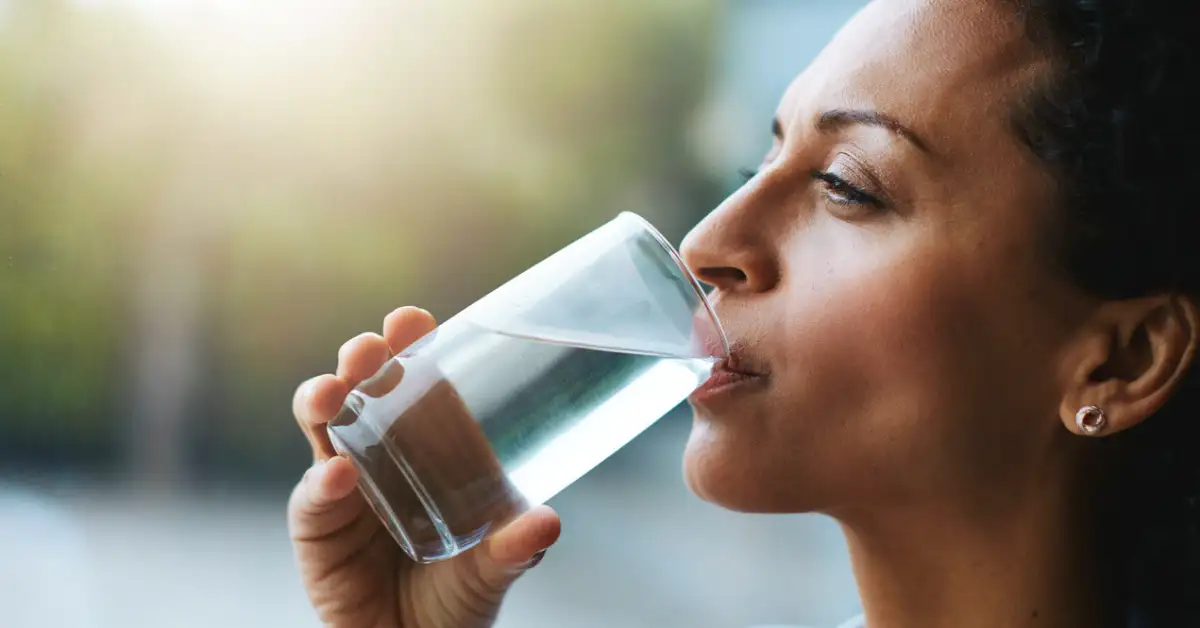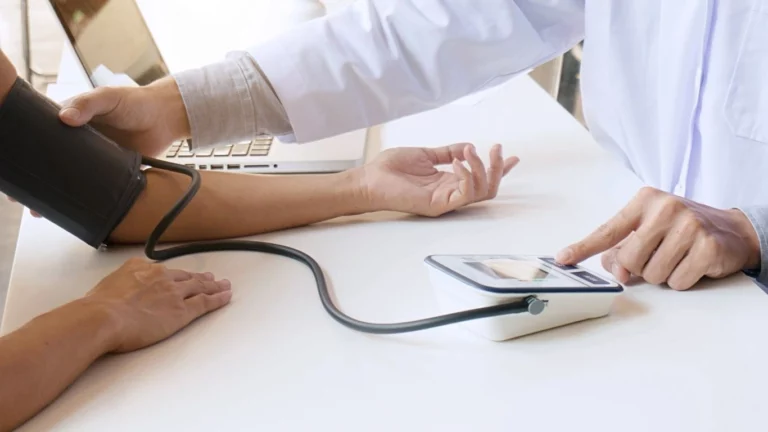Can Dehydration Cause Acid Reflux? Understanding the Link and How to Prevent It
Can dehydration cause acid reflux? Uncover the answer and explore the intricate relationship between these two conditions in this in-depth article. Discover the impact of proper hydration on acid reflux symptoms, dietary recommendations for managing both issues, and medical approaches for treatment.
Introduction
When it comes to our health, we often focus on different aspects of well-being, such as nutrition, exercise, and stress management. However, one critical factor that often goes unnoticed is hydration. Dehydration can have significant effects on our bodies, including our digestive system. In this article, we will explore the relationship between dehydration and acid reflux, and how staying properly hydrated can help prevent this uncomfortable condition.
Understanding Dehydration
Dehydration occurs when our bodies lose more fluids than we consume. This imbalance can be caused by various factors, such as excessive sweating, inadequate water intake, or certain medical conditions. When we don’t drink enough water, our bodies struggle to function optimally, impacting various systems, including digestion.
Acid Reflux: Definition and Causes
Acid reflux, also known as gastroesophageal reflux disease (GERD), is a digestive disorder characterized by the backward flow of stomach acid into the esophagus. Common causes of acid reflux include certain foods, obesity, smoking, and certain medications. But can dehydration play a role in exacerbating acid reflux symptoms?
The Relationship Between Dehydration and Acid Reflux
While dehydration alone may not directly cause acid reflux, it can certainly contribute to its occurrence and severity. Dehydration affects the digestive system in several ways, leading to changes in the stomach’s acid production and the overall functioning of the gastrointestinal tract.

How Dehydration Affects the Digestive System
The Role of Water in Digestion
Water is essential for digestion as it helps break down food and facilitates nutrient absorption. Lack of sufficient water can slow down the digestion process, causing food and stomach acid to linger in the stomach for longer periods.
Effects of Dehydration on Digestive Functions
When the body is dehydrated, the production of stomach acid decreases, leading to a reduction in the stomach’s acidity level. As a result, the lower esophageal sphincter (LES) may not close tightly, allowing stomach acid to flow back into the esophagus, triggering acid reflux symptoms.
Impact on Acid Reflux Symptoms
Dehydration can exacerbate existing acid reflux symptoms, causing heartburn, chest pain, regurgitation, and difficulty swallowing. Additionally, chronic dehydration can lead to more severe complications, such as esophagitis and Barrett’s esophagus.
Scientific Studies and Findings
Research on Dehydration and Gastrointestinal Issues
Numerous studies have explored the impact of dehydration on gastrointestinal functions. These studies have shown that dehydration can slow down the movement of food through the digestive system, potentially leading to issues like acid reflux and constipation.
Studies on Acid Reflux and Hydration Levels
Some research suggests a correlation between hydration levels and the severity of acid reflux symptoms. Staying adequately hydrated may help reduce the frequency and intensity of acid reflux episodes.
Correlation Between Dehydration and Acid Reflux Incidence
While more research is needed to establish a direct link between dehydration and acid reflux, the existing evidence indicates that proper hydration can positively impact digestive health and reduce the risk of acid reflux.

Recognizing the Signs of Dehydration and Acid Reflux
Common Symptoms of Dehydration
Identifying dehydration is crucial for maintaining overall health. Common signs of dehydration include dry mouth, dark-colored urine, fatigue, dizziness, and dry skin. Additionally, individuals may experience a decrease in urine output and feelings of thirst.
Identifying Acid Reflux Symptoms
Knowing the symptoms of acid reflux can help differentiate between acid reflux and dehydration issues. Acid reflux symptoms often include heartburn, a burning sensation in the chest, regurgitation of sour-tasting liquid or food, and difficulty swallowing.
Overlapping Signs: Dehydration vs. Acid Reflux
Interestingly, some symptoms of dehydration and acid reflux can overlap. For instance, both conditions may cause fatigue and dizziness. Therefore, it is essential to consider these factors together when evaluating overall health and well-being.
Preventing Dehydration-Induced Acid Reflux
Importance of Staying Hydrated
To prevent dehydration-induced acid reflux, staying adequately hydrated is crucial. Aim to drink at least eight cups (64 ounces) of water daily, and more if you are physically active or live in a hot climate. Adequate hydration supports the entire body, including the digestive system.
Hydration Tips to Reduce Acid Reflux Risk
To optimize hydration and reduce the risk of acid reflux, consider these tips:
- Sip water throughout the day rather than drinking large amounts at once.
- Avoid sugary and caffeinated beverages, as they can contribute to dehydration.
- Consume hydrating foods like fruits and vegetables, which have a high water content.
- Carry a reusable water bottle to ensure easy access to water throughout the day.
- Drink water before and after meals, rather than during meals, to prevent overfilling the stomach and reduce acid reflux episodes.
Dietary Recommendations for Managing Both Conditions
In addition to staying hydrated, making dietary adjustments can help manage both dehydration and acid reflux. Avoiding spicy, acidic, and fatty foods can reduce the risk of acid reflux, while incorporating water-rich foods and hydrating beverages can support overall hydration.

Hydration and Acid Reflux Management
Fluid Intake Guidelines for Acid Reflux Sufferers
For individuals with acid reflux, it’s essential to manage fluid intake carefully. Drinking too much during meals can increase stomach pressure and trigger acid reflux symptoms. Opt for small sips of water between meals to stay hydrated without overwhelming the stomach.
Best Beverages for Acid Reflux and Hydration
Choosing the right beverages can make a significant difference in managing acid reflux and staying hydrated. Water is the best choice for both purposes, but herbal teas and coconut water can also be hydrating options with a lower risk of triggering acid reflux.
Balancing Hydration with Mealtime Strategies
Timing your fluid intake is essential when managing both hydration and acid reflux. Try to hydrate adequately between meals, and avoid drinking large amounts of fluids 30 minutes before and after eating to prevent reflux episodes.
Lifestyle and Dietary Factors
Avoiding Dehydrating Habits and Triggers
Certain lifestyle habits can contribute to dehydration. Avoid excessive alcohol consumption, as alcohol can dehydrate the body. Moreover, smoking and excessive caffeine intake can have similar dehydrating effects.
Impact of Diet on Acid Reflux and Hydration
Maintaining a balanced diet is crucial for both acid reflux management and hydration. Consuming smaller, more frequent meals can prevent overeating and reduce pressure on the stomach, decreasing the risk of acid reflux.
Incorporating Hydrating Foods into the Diet
Certain foods, such as watermelon, cucumbers, and oranges, have high water content and can help keep the body hydrated. Including these foods in your diet can supplement your water intake and contribute to better hydration.

Medical Approaches and Treatment
Medical Management of Acid Reflux
If lifestyle changes and hydration strategies do not provide relief, medical intervention may be necessary. Antacids, H2 blockers, and proton pump inhibitors are common medications used to treat acid reflux and reduce stomach acid production.
Treating Acid Reflux Induced by Dehydration
Addressing the root cause of acid reflux induced by dehydration involves a two-pronged approach: managing acid reflux symptoms while also rehydrating the body. Consult with a healthcare professional to develop a comprehensive plan tailored to your specific needs.
Seeking Professional Advice and Diagnosis
If you experience frequent acid reflux symptoms or struggle with chronic dehydration, it’s essential to seek professional advice. A healthcare provider can assess your condition, provide an accurate diagnosis, and offer personalized recommendations for treatment and prevention.
Conclusion
While dehydration alone may not directly cause acid reflux, it can certainly play a significant role in its occurrence and severity. Staying adequately hydrated is essential for overall health and can help prevent dehydration-induced acid reflux. By understanding the link between hydration and acid reflux, making appropriate lifestyle and dietary adjustments, and seeking professional advice when needed, you can better manage both conditions and promote optimal digestive health. Remember, prevention is key, and maintaining proper hydration is a fundamental aspect of achieving overall well-being.

Camellia Wulansari is a dedicated Medical Assistant at a local clinic and a passionate health writer at Healthusias.com. With years of hands-on experience in patient care and a deep interest in preventive medicine, she bridges the gap between clinical knowledge and accessible health information. Camellia specializes in writing about digestive health, chronic conditions like GERD and hypertension, respiratory issues, and autoimmune diseases, aiming to empower readers with practical, easy-to-understand insights. When she’s not assisting patients or writing, you’ll find her enjoying quiet mornings with coffee and a medical journal in hand—or jamming to her favorite metal band, Lamb of God.







